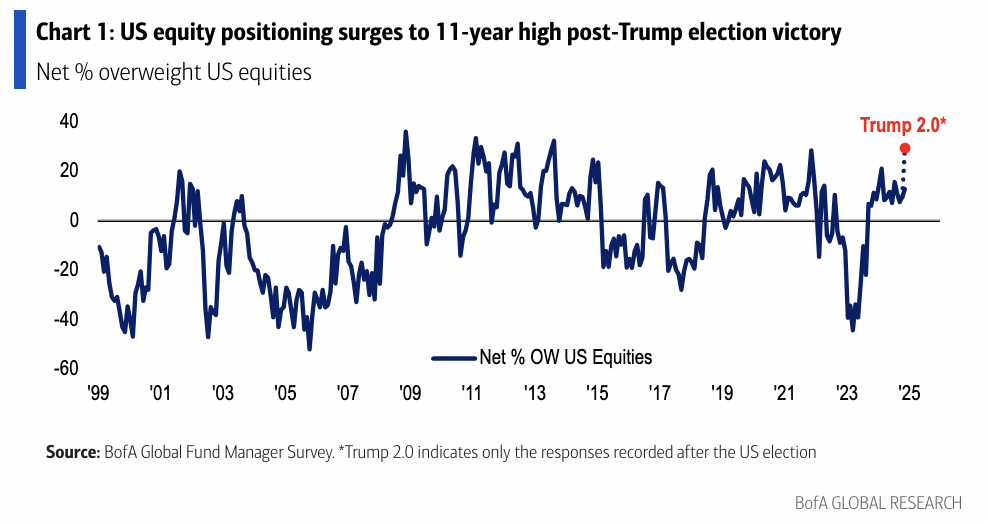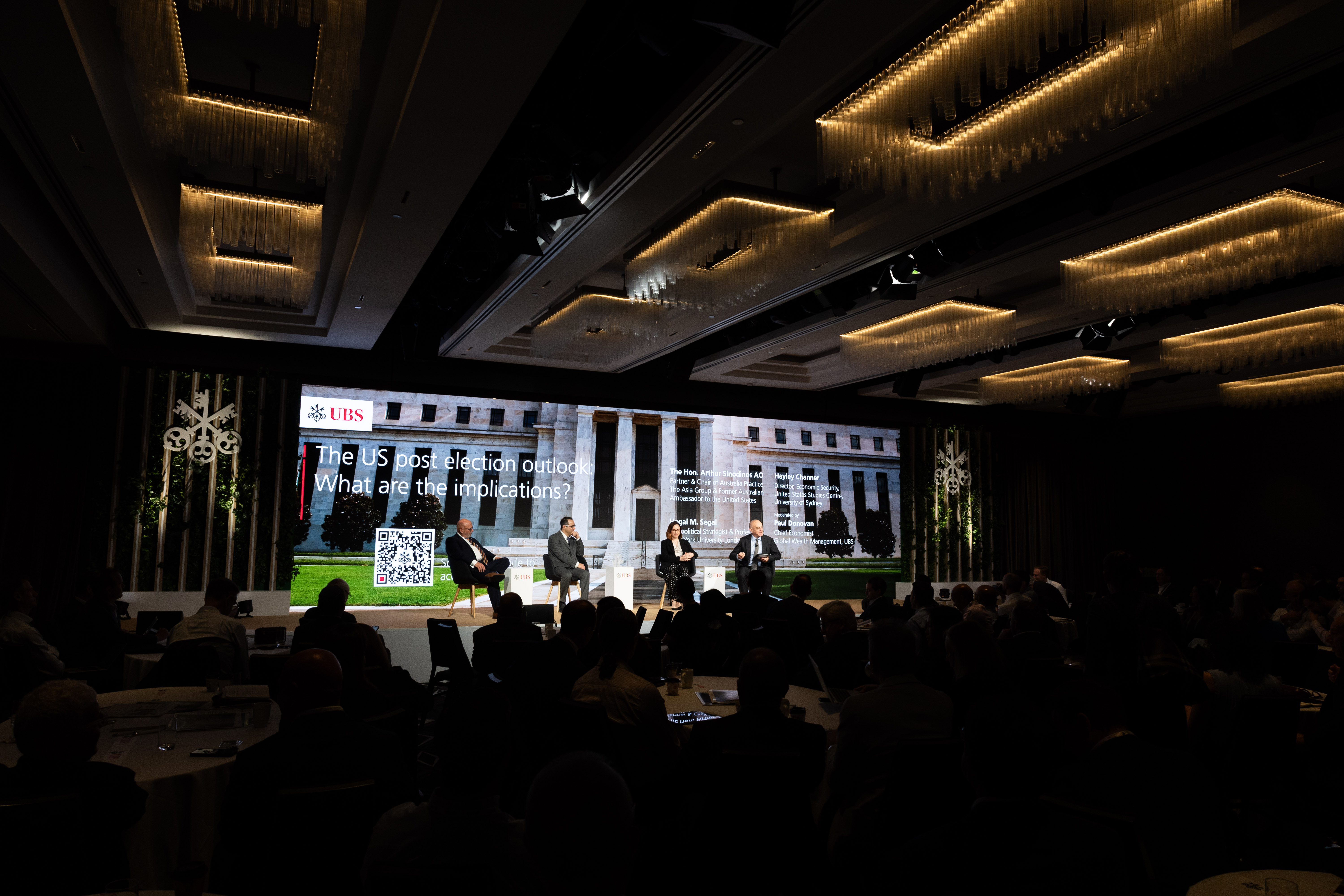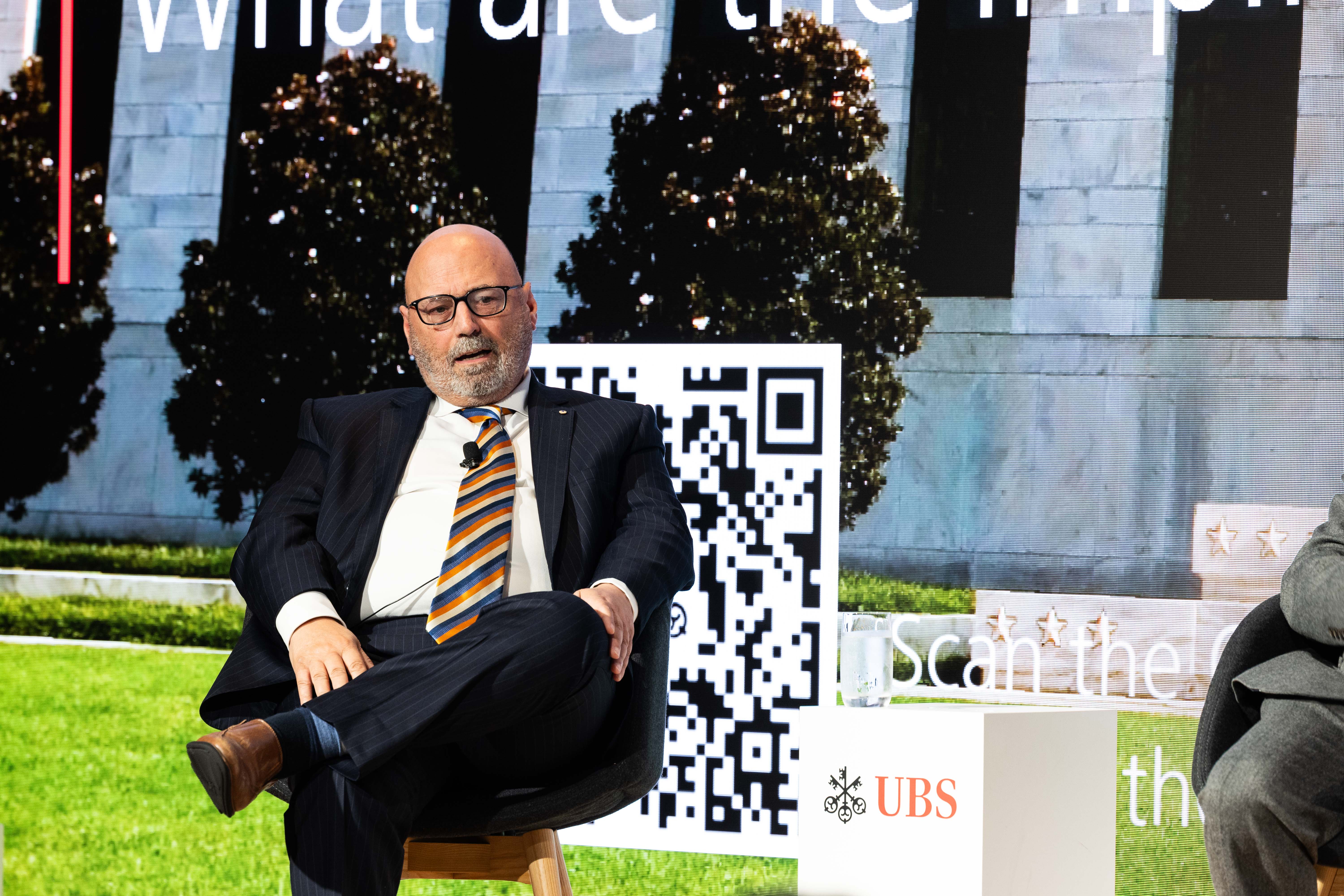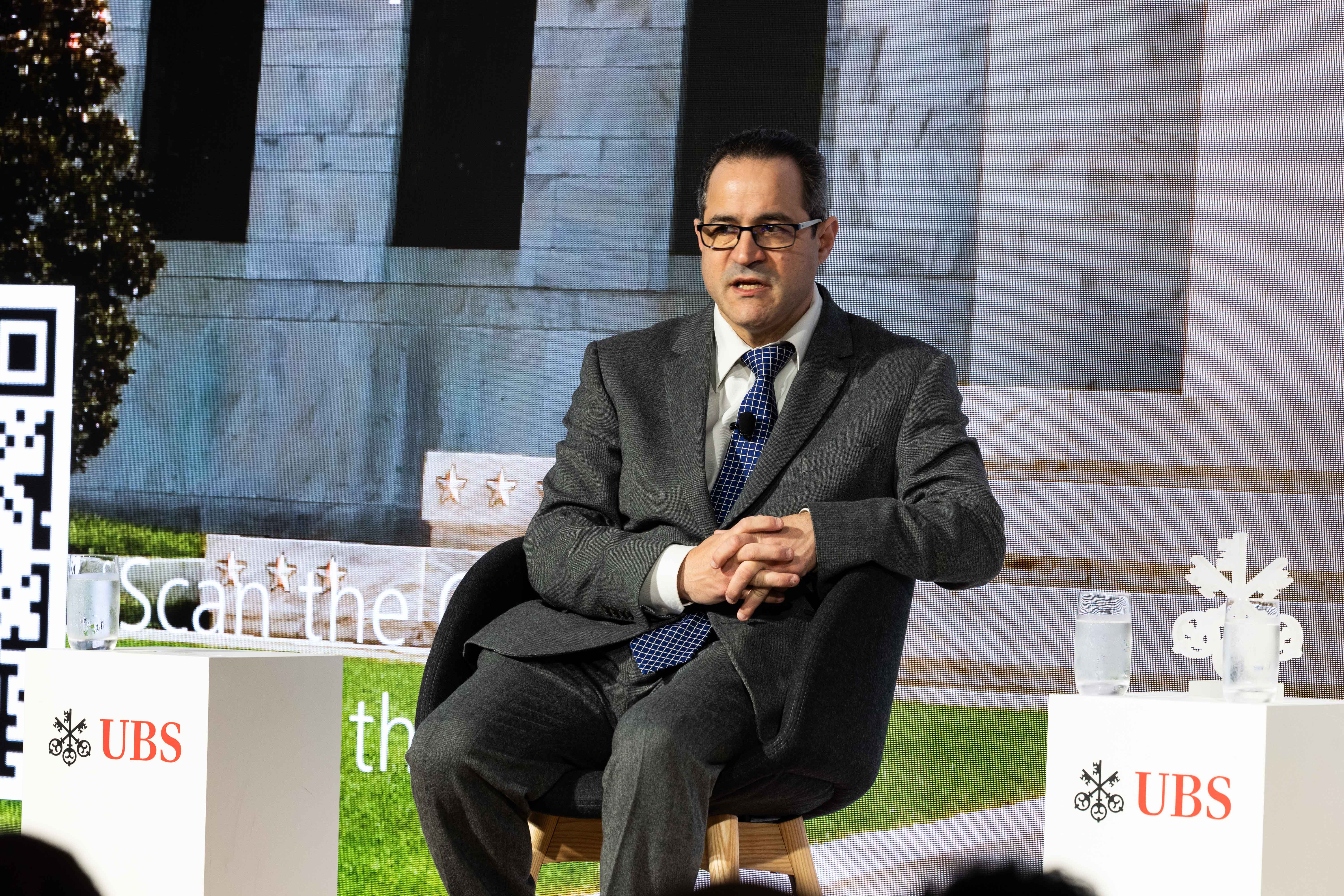How the second Trump presidency could impact Australian investors and businesses
Ask the financial markets what they think of the re-election of Donald Trump and the pricing tells the whole story. Bond yields sold off, suggesting investors in that asset class think Trump will be less fiscally responsible (or at least borrow a lot more to spend a lot more.) Gold also fell. But that's because the US dollar rose (a classic American exceptionalism play). Stocks and Bitcoin both had their best weeks of the year and the latter asset is closing in on US$100,000 per unit.
Fund managers appear to agree. The latest Bank of America Fund Manager Survey, the first since the election, showed a surge in bulls for growth assets like small caps and high-yield bonds.

US equity positioning surged to an 11-year high while optimism, as measured by the Bull and Bear Indicator, climbed to 6.2. It's a long way from the extreme level (8) but the post-election bump is very notable. Trump's win has also cemented where fundies think the winning trades will be in 2025: US stocks, small caps, and the US Dollar - all of the Trump trades.
But what financial markets think can be very different to what investors and corporations will be thinking in light of Trump's resurgence to power. So in this wire, we're going to gauge what Australian investors and corporate leaders should be thinking about in this new world order with the help of a panel at the recent UBS Australasian Conference in Sydney.
-42.jpg)
The panel of experts are:
- Hayley Channer is the Director of the Economic Security Program with the United States Studies Centre at the University of Sydney.
- Hagai M. Segal is a UK-based academic and consultant with expertise in geopolitics and Middle Eastern affairs. He is also a professor at New York University London.
- Arthur Sinodinos AO is the former Chief of Staff to Prime Minister John Howard. He served as Ambassador to the United States between February 2020 and March 2023.
The panel was moderated by Paul Donovan, UBS Global Wealth Management's Chief Economist based in London.
The potential impact of Trump's tariff policies on Australia
Experts are already earmarking Trump's return to the White House as both a shift back to the 'unilateral' world (that is, countries forming individual alliances with other nations) and, in all likelihood, the end of the US' involvement in some key trade agreements. The panel also agreed that Trump is serious about imposing tariffs and that he thinks they are a way to gain leverage in trade negotiations.

"He thinks it's a free lunch at the expense of foreigners," said Sinodinos. "I think he is serious on the task, serious on a higher tariff on China which then has flow-on effects for us."
"It's not just whether we get tariffs and the economic flow-on effect [of those]. It's how tariffs are potentially linked to other objectives that the administration wants to pursue," Sinodinos added.
What if China begins to impose tariffs of its own and what happens to our trading relationships?
Channer agreed, saying the second-round effects of these tariffs are what will have the biggest impact on Australians.
-49.jpg)
"If China is facing all these tariffs and can't sell as much as to the United States, that means its economy is going to suffer and it's not going to buy as many commodities from Australia. That means our commodity prices could go lower," Channer said. "I think it is going to be a much tougher time."
One of the other things that will be impacted by tariffs and a reshaped trade policy is monetary policy—specifically, its effect on inflation and interest rates.
"Some economists are predicting in the short term, there could be a bump for Australia but there are also going to be immediate negative consequences. For instance, if interest rates stay high and inflation rises back above 2.4% in the United States, we won't get a rate cut before our election next year," Channer said.
How should Australia be thinking about supply chains and industrial transformation?
"Things that happen in the US and China will really affect us. The only thing to turn to is to trade more with other countries and to remind President Trump of Australia's value," she added.
DFAT data suggests Australia and the US conduct around $77 billion in two-way trade every year. But the resurgence of Trump also suggests something else - the need to diversify quickly away from the two major powers.
"We need to find new supply chains and diversify our risk. We are trying to do that already with China, but we'll need to do it faster now," Channer argued.
When it comes to industrial policy, the Trump administration has strongly signalled its intent to revoke the Biden-era Inflation Reduction Act. That act sucked a lot of capital away from other countries and put Australia in a place it simply could not afford.
"Can you really match the firepower that other countries like the US can bring to the table? We're going to have to think about how we complement some of those supply chains rather than seek to recreate things," Sinodinos added.
"We're going to have to mobilise national resources to do this on a scale we haven't seen for many decades in Australia," he added.
What are institutional investors and CEOs already saying?
Naturally, some companies are trying to already get ahead of the curve. One spoke to Sinodinos following the outbreak of the war in Eastern Europe and offered the following:
"They had assets in Russia and he was asking me about the future. My advice was you are in an unenvious situation because if you stay there, it looks like you're complicit in what Putin is doing and your reputation will be affected. They ended up having to leave. Today, ESG has an extra G and the G is for geopolitics," Sinodinos said.
Sinodinos also noted that major investors like sovereign wealth funds are factoring in geopolitics into their investment processes.
"One major investor said they are looking to be underweight in China and overweight in Japan. They're trying to work out what to do in South East Asia and that was because of what they saw in the Indo-Pacific," he added.
Finally - will Australia have to choose?

Segal offered one last big-picture point for Canberra. If the US begins to impose huge tariffs on China specifically, will Australia have to choose between its economic ally or its security ally?
"What Australian policymakers have been fearing for decades is whether someone is going to ask us to choose," Segal said. "I think that's the nightmare scenario - but the unlikely scenario at the moment."
Segal also noted Beijing's sudden removal of wine tariffs was watched in the West closely.
"It's been seen as a real success of Australia standing up to the principles of China. [Beijing] realised it had created vulnerabilities with itself by breaking that relationship. I think Australia is okay to some extent on the Chinese side. The question is whether Trump is going to try and force elements of that relationship," Segal said.
4 topics

